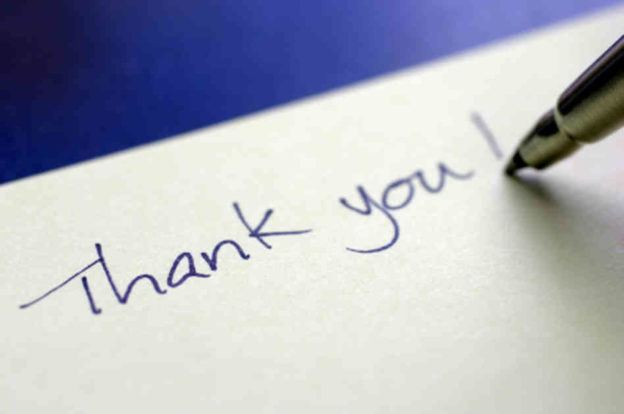I regularly observe career coaches and recruiters encouraging candidates to send handwritten thank you letters to their interviewers. I have even seen hiring managers say that receipt of a thank you note is part of their decision making process and they judge candidates negatively for failing to comply. In some cases they even cut candidates who don’t follow these unwritten rules
This practice is both biased and bonkers for a number of reasons. As our cultures change and becomes more diverse, courtesies which some demographics think are common, are not that typical. Some cultures have never even heard of them.
In today’s remote, hybrid and digital age they are also not practical and are no longer “best practices.” With people working in different locations a hand written letter will have to be scanned to be sent that person, by …email
Unwritten rules
Thank-you notes are part of a set of unwritten rules that discriminate against people who don’t know what those are. It is part of “in group” thinking and “this is the way we do things here” mentality riddled with all kinds of bias. However, this is not the way people do things everywhere. If we want to hire diverse teams, rather than looking at cultural fit, then we have to look beyond social expectations around unwritten protocols of the dominant group.
This leads to exclusion and perpetuates discrimination.
Reasons to rethink hand written thank you letters
1. Cultural differences
At a time when organisations are trying to be more equitable and bias conscious we need to reflect on some of these expected social practices. How people express gratitude varies from one culture to another. Sending handwritten thank you letters or cards tends to be a white, privileged practice, and one that is rapidly becoming out dated. They are not typical in many cultures including India, Africa and Asia.
Research also shows that the formal expression of gratitude and saying “thank you” is more embedded in English speaking cultures than others. I was actually raised to send hand written thank you letters (white, middle class, English speaking background), but today feel no need to receive them.
In some cultures a verbal “thank you” is sufficient or a message via whichever channel you have been communicating with the interviewer.
2. Generational differences
Age differences will also play a part. An older interviewer may expect something written and more more formal such as an email (although that in itself is a stereotype). A younger person may be OK with a WhatsApp or text message. It is about reading the room and deciding what is appropriate for that person.
3. Environmental considerations
At a time when we are focusing on the environment, some may view sending a card or handwritten thank you letters or cards as wasteful of resources, exaggerated or inappropriate.
This is reflected in a overall decline of 13% in the greeting card business.
4. Timeliness
Today, when many are not in the office every day and some even work remotely from another location, a handwritten thank you letter could take weeks to arrive at a destination. A digital response is not only better for the environment, but is faster
5. Storage
Handwritten thank you letters have to be filed somewhere. In a the age of the cloud your thoughtful note may be filed vertically. At least an ATS will store your digital offering with your other documents. This is my main problem with them and why I prefer email. Otherwise someone has to scan them and NOONE has time for that.
Shifting expectations
The expectation from hiring managers and recruiters for candidates to be thankful for the opportunity to interview with a company reflects a power dynamic. I always send candidates an email of thanks clarifying next steps, but I have never sent a handwritten note or card. I also have terrible hand writing. How many hiring managers or recruiters send handwritten thank you letters to all candidates? I will be happy to eat my words.
We also tend to see the expression of gratitude as a one way street. Very often candidates jump through huge numbers of hiring hoops and are then ghosted or treated poorly in some other way. In today’s environment we are seeing a shift of expectation from candidates for better treatment all round.
I am not suggesting you stop saying thank you to your interviewers or even sending written thank you letters if you wish. It’s a good opportunity to cement a relationship with a hiring manager. Gratitude should never be perceived to be inappropriate. But it’s time to stop referencing them in hiring decisions. They simply shouldn’t be a factor.
The more recruiters that receive unconscious bias awareness training the better, but many are still resistant. We also see many in the career sector sending out click biat engagement farming content at the expense of giving candidates sound, unbiased advice. We will never hire diverse teams if we continue to apply these unwritten, biased and outdated rules.
If you need awareness training around bias in your recruitment system get in touch NOW!





